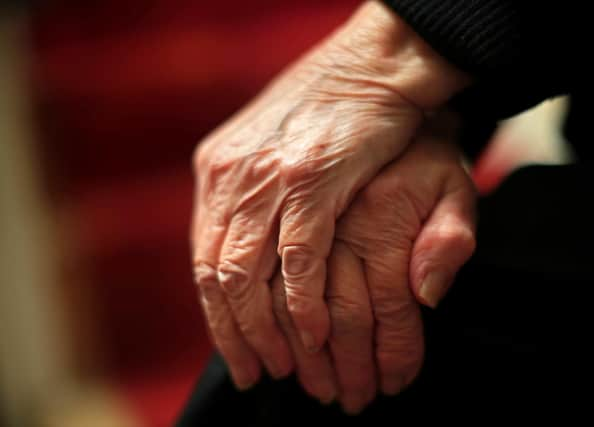Deprivation of liberty applications in Lincolnshire taking 55 days on average


Vulnerable people in Lincolnshire are having to wait too long for applications from carers to make decisions on their behalf, figures show.
With some cases taking longer than a year to be dealt with nationally, mental health charity Mind said it is "disgraceful" that anyone should be forced to wait this long for an outcome
Advertisement
Hide AdAdvertisement
Hide AdHospitals and care homes must apply to councils for Deprivation of Liberty Safeguards to make decisions for anyone thought to lack the mental capacity to do so themselves, such as those with dementia or serious mental health problems.
There is currently a legal maximum time limit of 21 days for applications to be processed.
But NHS Digital data shows Lincolnshire County Council completed 4,285 applications in 2020-21, with each one taking 55 days on average.
This was up from an average of 48 days the year before.
The number of completed standard applications which were processed within 21 days last year was unavailable, but one application had taken around one year (437 days) to be finalised.
Advertisement
Hide AdAdvertisement
Hide AdThe average time to complete an application across England rose from 142 days in 2019-20, to 148 last year – with one in the London borough of Merton taking over 10 years.
Mind said DoLS were intended to protect some of the most at risk members of society, but they have been "riddled with problems" and left thousands of people without vital legal protection.
Alison Cobb, specialist policy advisor at the charity, said: "These delays mean that people are being deprived of liberty without the right safeguards, as providers cannot use all the protective legislation.
“It is a disgraceful breach of human rights that people are waiting a year or longer for their DoLS application to be processed.
Advertisement
Hide AdAdvertisement
Hide Ad"This can mean that they endure unnecessary delays to being placed in the best care setting for them, which would help to protect them from harm."
The Government has committed to replacing the safeguards with Liberty Protection Safeguards in April 2022, but Mind fears these will also fail to put individual needs at the heart of the process.
Of the 4,285 applications completed in Lincolnshire last year, the largest proportion (38%) were from nursing homes.
And those with applications submitted on their behalf were typically aged 85 and over – at a rate of 9,032 in every 100,000 people in that category.
Advertisement
Hide AdAdvertisement
Hide AdThe Alzheimer's Society said local authorities have been overwhelmed with applications since a 2014 court ruling widened the definition of deprivation of liberty.
Gavin Terry, head of policy at the Alzheimer’s Society, added: "As applications are piling up on desks, people with dementia are effectively being unlawfully deprived of their freedom, unable to come and go as they please, without any safeguards in place to protect them."
The Department of Health and Social Care said protections for people who need them will be improved and extended through the new LPS.
A spokeswoman added: “To protect the human rights of people who may lack mental capacity it is important care homes and hospitals continue – until the new safeguards are in place – to make DoLS applications and local authorities consider them.”